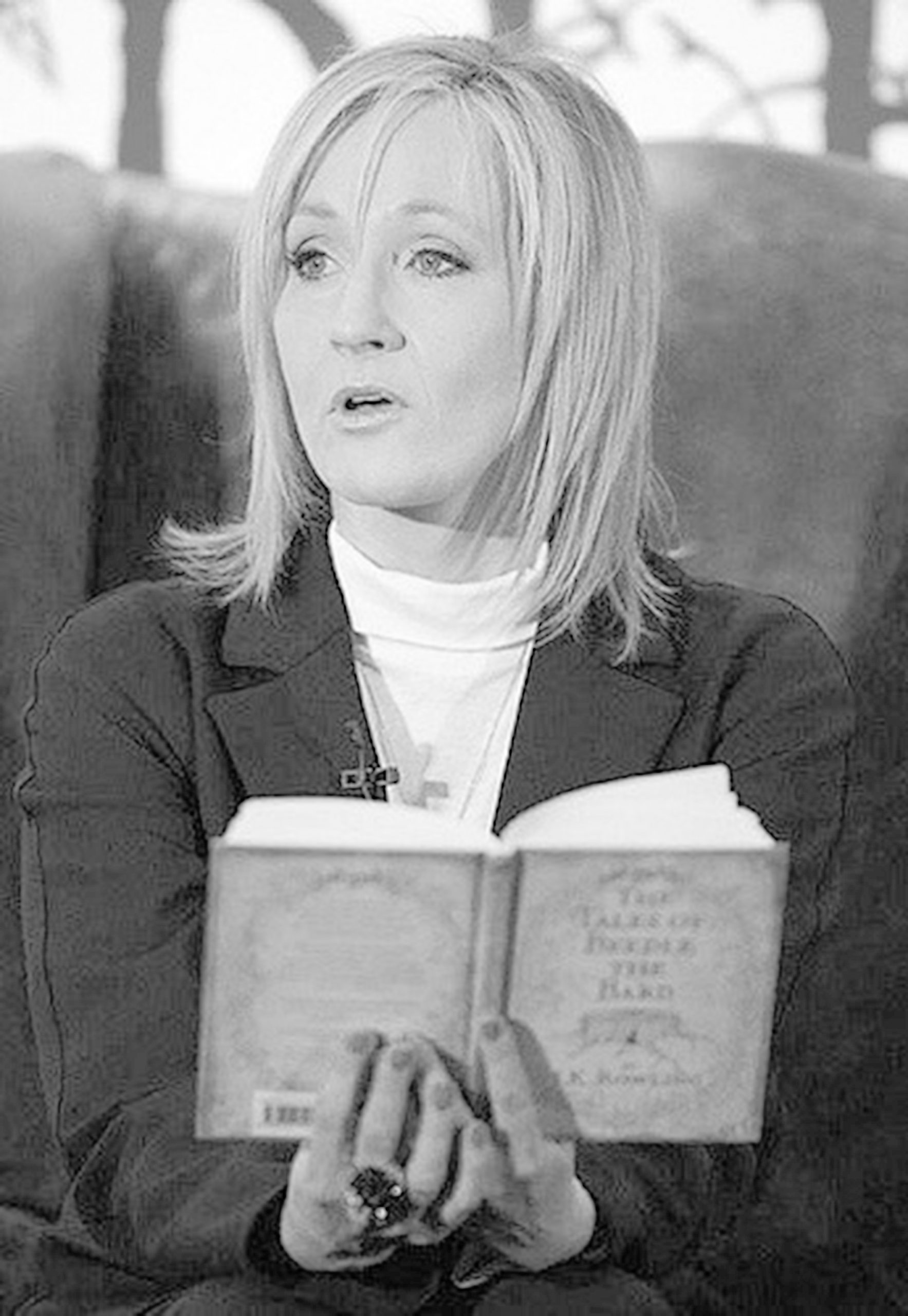At eight years old, I picked up Harry Potter and the Sorcerer’s Stone for the first time.
For Halloween that year, I dressed as Hermione Granger. My ninth birthday party was Harry Potter themed.
I was first in line at Barnes & Noble for the midnight release of Harry Potter and the Deathly Hallows.
During early high school, my room transformed into a Gryffindor paradise.
Over the course of my high school career, I hosted not one but two elaborate Harry Potter themed costume parties.
For the first time, my admiration for a book series extended to its author.
I reveled in her Twitter clapbacks, putting the bullies of the world in their place.
I listened in awe, as I learned of the personal struggles she faced before success and it was with pride knowing that my favorite author had put much of her earnings to charity, dropping off the list of worldwide billionaires.
When, during senior year of high school, I was asked to write a paper about someone I looked up to, I wrote about her.
To me, Harry Potter was the epitome of fiction and its author the queen, so when J.K. Rowling supported the casting of a known domestic abuser in her upcoming film, it felt like I had been slapped.
At first, I was certain there must be some mistake, because Rowling herself was a survivor of domestic abuse, so surely it couldn’t be as bad as it looked.
But then came the news that the one character from the series she had confirmed as gay would not be addressed as such in her upcoming film.
Then, she liked two transphobic articles on Twitter.
Saying goodbye to the most influential of my childhood heroes has no doubt been the most difficult break-up I will ever go through.
Finding the words to express such disappointment is, if possible, even harder.
But standing by your beliefs and not supporting those who choose to stand with one foot in the past allows for a better likelihood of change in society.
Gathering even a quarter of the world’s Potterheads to do the same would be monumental, as so many are a part of the diverse group ignored in every branch of the franchise.
This goes for other celebrities too. No matter how long they’ve had a clean record or how much of a hero status they have with their fans, the moment they overstep their boundaries to disrespect a group of people or violate an individual’s boundaries, their fans must speak up.
Whether they like it or not, actors, writers, musicians, and filmmakers represent the face of what we strive to achieve in society and it’s their responsibility to educate themselves and be respectful of other people’s cultures and identities.
People are bound to make mistakes but there’s a difference between mistaking fiction for fact and brushing off an insensitive comment or action like it’s normal.
I’ve previously written on why representation is so important in the media but in order to set such change in motion, audiences need to facilitate the media they consume.
Supporting films with straight, white, male protagonists isn’t a bad thing but there needs to be some way of letting visual artists know that bisexual, Asian, female led films are equally as interesting.
If these individuals refuse to change their content for the twenty-first century, then they shouldn’t be worth anyone’s time.
There are a lot of celebrities who’ve made much worse decisions than Rowling but I focus particularly on her because of the high status she has in society.
She’s known for standing up for the less privileged and for human rights.
She has the ability to properly represent a variety of different people in her work, provided the correct research is done, without having to worry about losing her literary throne.
Saying goodbye to the most influential of my childhood heroes has no doubt been the most difficult break-up I will ever go through.
The level of respect she has from her fans and critics around the world could provide her with the opportunity to influence readers young and old with modern-day issues but she actively chooses to write the same straight, white protagonists who end up in a romantic relationship with one of the other people in their friend group at the end of the story.
It’s not the 1990’s anymore, censoring content on different sexualities and gender identification isn’t needed.
This doesn’t mean people shouldn’t enjoy the world of Harry Potter anymore.
I will continue to display that Gryffindor banner over my bed and wear my Bellatrix Lestrange cosplay with pride but it’s important to separate these classic stories from the content that is continuing to be released.
It’s not the past actions that are a problem, it’s the new.
If the author won’t change her ways, then the fans shouldn’t either.
